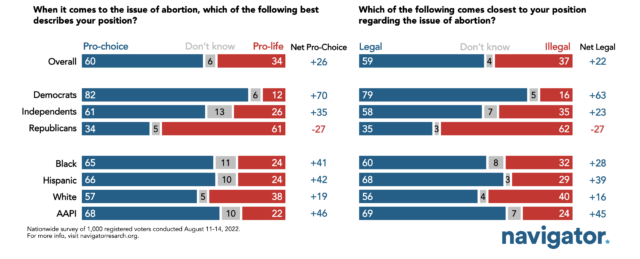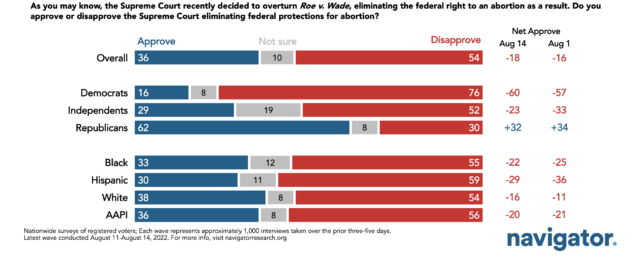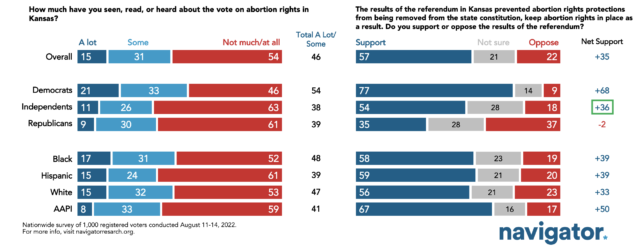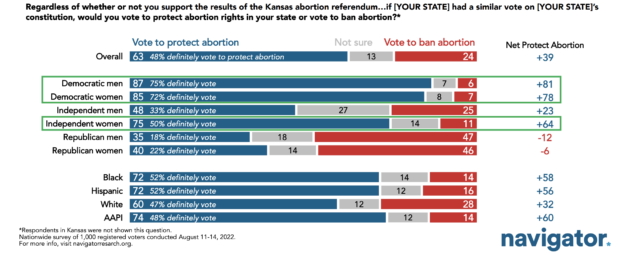After right-wing education hero insults teachers, Tennesseans push back on Bill Lee's charter plan. Is it too late?
By KATHRYN JOYCE
PUBLISHED AUGUST 22, 2022

The mailers arrived last week: four-page glossy brochures containing excerpted articles from The Federalist and USA Today, telling Tennesseans they'd been misled about Hillsdale College. They followed the previous week's text message campaign, when voters across the state began receiving political spam attributed to Hillsdale chief marketing officer Bill Gray, insisting that people throughout the Volunteer State were clamoring for Hillsdale to open K-12 charter schools, and directing them to a recently-built website where they could learn "the truth" about Hillsdale's work in Tennessee.
The website covered the same ground as the mailers — four pieces all dedicated to defending the small, conservative Christian college from Michigan that has become a center of right-wing educational activism — and an opening message from Hillsdale president Larry Arnn, offering an explanation of why, "Over the past few months, Hillsdale College and I have been the subject of controversy in Tennessee."
Related
This was all a belated damage control effort, coming six weeks after investigative journalist Phil Williams, of Tennessee's News Channel 5, published secretly-recorded video of Arnn declaring, during a closed-door event with Tennessee Gov. Bill Lee, that public school teachers come from "the dumbest parts of the dumbest colleges in the country." At that same reception, Arnn had argued that most college diversity officers get education degrees because they're "easy"; that teachers are "messing with people's children, and they feel entitled to do anything to them"; that modern education is akin to "enslavement" and "the plague" that "destroys generations of people"; and that he aimed to prove "that you don't have to be an expert to educate a child. Because basically anybody can do it."
The Arnn video dropped like a bomb amid both growing Republican orthodoxy on school privatization initiatives — with support for vouchers and charters rapidly becoming a party litmus test — and what, until that point, had seemed like Hillsdale's year. Five months earlier, in his January State of the State address, Lee had announced he was embarking on a formal partnership with Hillsdale — a school he characterized as "the standard bearer in quality curriculum and the responsibility of preserving American liberty" — to open some 50 public charter schools across the state, as well as implementing Hillsdale's ideas about "informed patriotism" through a new Institute of American Civics to be launched at the University of Tennessee's flagship campus.
At the time, Tennessee's Republican-dominated legislature gave the announcement a standing ovation. The partnership looked to be a crowning achievement for Hillsdale, setting 2022 up as a year of exponentially growing influence for a school that has long punched above its weight. As Salon reported in a three-part investigative series in March, Hillsdale has quietly become one of the most influential forces in conservative politics. The school's 1,500-student campus in southern Michigan draws leading right-wing intellectuals, politicians and even Supreme Court justices. Its Washington, D.C., branch hosts a rotating cast of conservative pundits and Republican staffers as guest faculty.
When Donald Trump sought to rebut the New York Times' "1619 Project," with its emphasis on the central role of slavery in America's founding, he turned to Arnn and another top Hillsdale official to lead his "1776 Commission." And since the school began a national network of publicly-funded charter schools in 2010, Hillsdale's "classical education" model — extolling Western civilization, American exceptionalism and the idea that America was founded on "Judeo-Christian" principles — has become the chief model of what conservatives want to see in education.
Its influence has been felt far beyond Tennessee. In Florida, which has a number of Hillsdale-affiliated charter schools, the college enjoys close ties to the administration of Gov. Ron DeSantis. At a Hillsdale leadership summit this February, DeSantis and Arnn traded compliments, with Arnn calling the governor "one of the most important people living" and DeSantis saying he'd rather hire a Hillsdale graduate than one from his own alma mater, Yale, because he knew the former would "have the foundations necessary" to help pursue "conservative policies."
Several years ago, Hillsdale was tapped to help overhaul Florida's civics standards along more "patriotic" lines. Following the release of those revamped standards, Hillsdale was again contracted to help train teachers to implement them this summer. As the Miami Herald's Ana Ceballos and Sommer Brugal reported in late June, the first trainings led to immediate complaints from teachers that the standards seemed set on advancing Christian nationalism and minimizing the horrors of U.S. chattel slavery (in keeping with Hillsdale's "1776 Curriculum," which argues that even slave-owning founding fathers were closet abolitionists).
In a follow-up story this July, Ceballos and Brugal reported that two people associated with Hillsdale — a staffer involved with the "1776 Curriculum" and the head of the school's College Republicans club — had been hired to screen textbooks for "prohibited topics," leading to the DeSantis administration's April announcement that it had rejected nearly half the math textbooks schools had submitted for approval on the grounds that they promoted critical race theory or social emotional learning.
In Arizona, far-right gubernatorial candidate Kari Lake has declared that she "believe[s] in the Hillsdale College curriculum" as one that "makes sense" and "sets our kids up for success," as that state's NBC 12 reported last week. A spokesperson for Lake elaborated that the candidate, who also wants to ban diversity, equity and inclusion training in public schools, had chosen Hillsdale's curriculum "as an alternative to the biased, CRT-based indoctrination permeating current textbooks and lesson plans." In 2018, another Arizona Republican, then-superintendent of public instruction Diane Douglas, who promoted the anti-evolution "Intelligent Design" theory, unsuccessfully tried to get Hillsdale's curriculum adopted by the state's entire public school system to replace its history and science standards, which she denounced as "vague and incomplete at best, indoctrination at worst."
Related
And in South Dakota, where Arnn says pro-Trump Republican Gov. Kristi Noem offered to build Hillsdale a whole new campus, a newly-concluded effort to overhaul the state's social studies standards was also tied to Hillsdale. The 15-person workgroup that drafted the standards — which included 13 registered Republicans but only three currently certified teachers from the state — was led by former Hillsdale professor William Morrisey. As Corey Allen Heidelberg reported this April at the Dakota Free Press, one person who applied to join the workgroup claimed the hiring committee told them "the draft standards were already being created at Hillsdale College."
The final standards, which were released last week, include lessons on "patriotism" and warn that neither "Debating current political positions" nor "partaking in political activism at the bequest of a school or teacher" belong in the classroom. But the document includes its fair share of contentious conservative political arguments, including a provision that students must explain how Progressivism (classed alongside totalitarianism, communism, socialism and fascism) stands in "tension" with "America's founding principles." Other sections reiterate ideas found in Hillsdale's curricula, including that the "main Progressive ideas" depart from the Constitution and Declaration of Independence; that even slave-holding founding fathers "wished" for abolition; and that U.S. slavery must be compared with slavery and indentured servitude in Africa, Europe and elsewhere.
* * *
Amid this sprawling, somewhat amorphous sphere of influence, Hillsdale's contract with Tennessee was set to take the tiny college's vision for an empire of classical academies to the next level. All that abruptly came into question after the report of Arnn's comments, and the revelation that Lee had sat through them silently, listening while, as Williams reported, Arnn "hinted" that Lee "might have what it takes to be president someday." Lee said nothing in defense of his state's public school teachers, but did pipe up to say at one point that he believed Tennessee needed not just 50 but 100 Hillsdale charters.
The backlash was quick and explosive, and surprisingly bipartisan.
J.C. Bowman, executive director of the Professional Educators of Tennessee, a teachers' union, said he was "infuriated" by Arnn's "clear disdain for public educators." One of the state's principals' associations suggested that anyone who "could speak so vehemently against educators and educator preparation programs" should "be blackballed from having an impact on the system." Tennessee's association of superintendents invoked Teddy Roosevelt to vow that it would "work diligently to resist the efforts of misguided critics who are not 'in the arena' and whose supercilious opinions are worthy only of collective disdain."
Advertisement:
Democratic politicians, of course, promptly condemned Arnn's remarks. State Sen. Heidi Campbell tweeted, "There is not a single community in Tennessee that would willingly defund their own public schools in exchange for a charter affiliated with Gov. Bill Lee's offensive friend or Hillsdale College." Jason Martin, the Democratic gubernatorial nominee running against Lee this fall, launched a petition arguing that "our public school teachers who sacrifice so much daily should not fall victim to a governor who wants to radicalize our children through far-right, cherrypicked, 'pseudo-education' using *illegal* voucher based schooling."
Want a daily wrap-up of all the news and commentary Salon has to offer? Subscribe to our morning newsletter, Crash Course.
But even in deep-red Tennessee, Republicans joined in as well. House Speaker Cameron Sexton declared that Arnn had "insulted generations of teachers." Rep. Mark White, chair of Tennessee's House education committee, wrote on Facebook, "When the General Assembly convenes again next January any hope that Hillsdale will operate in Tennessee has been shattered." Lt. Gov. Randy McNally warned that Arnn's comments would "feature prominently in the vetting process" for any proposed Hillsdale charter schools." Last week, in one of many school board resolutions supporting teachers or condemning Arnn, Williamson County school board member Eric Welch — a Republican who presides over the district where Gov. Lee grew up — decried Arnn's "very asinine" insults and Lee's "deafening" silence.
More substantially though, some schools and districts began to cut their ties with Hillsdale. At Skillern Elementary, a Chattanooga charter school that was set to implement Hillsdale's curriculum, administrators announced in early July that they had terminated their contract with the college in order to avoid "inaccurate" "media frenzies." By mid-July, three school boards that had received the first charter applications from Hillsdale — or, more precisely, from American Classical Education, the independent group established to manage the applications of Hillsdale's American Classical Academy charters — had rejected the proposals before them, with two citing Arnn's comments explicitly. One such board, in the Jackson-Madison district, passed a resolution stating that students would be poorly served by Hillsdale charters, given Arnn's "low opinion of school teachers and administrators."
At first, Lee tried to claim that Arnn hadn't been talking about Tennessee teachers but rather "left-leaning activists in the public education system." But by late July he seemed to be distancing himself from Arnn, saying that Hillsdale's charters were "not my vision" and that he'd only met Arnn "maybe five times" in the previous two years. Last week, Lee added that he was "not engaged in Hillsdale's efforts."
In the face of all this, Hillsdale has struggled to craft a response. A college spokesperson argued to the Tennessean, Nashville's daily newspaper, that Arnn wasn't belittling teachers but rather "educational bureaucracies" that fail teachers and students alike. In mid-July, Arnn published op-eds in both the Tennessean and USA Today, saying he'd made similar remarks "many times" in the past and likely would do so again, but when he did, he used "dumb" not to mean "unintelligent" but rather "ill-conceived."
Conservative commentators with ties to Hillsdale College have come to Arnn's defense, writing that public school teachers have low SAT scores and poor literacy skills, and are indoctrinated in "cultural Marxism."
Two additional defenses were published in conservative outlets by writers affiliated with Hillsdale. At The Federalist, executive editor Joy Pullman, a Hillsdale alumnus, argued that Arnn hadn't been "mocking the intelligence of all public school teachers," then went on to charge at length that teachers have below-average SAT scores; that teaching licensure exams were set at a reading level "one step past being merely able to sound out the words on the page"; and that teachers' colleges substitute "a strong indoctrination in cultural Marxism" for academic excellence. At the National Review, Kevin Williamson, who has taught at Hillsdale, more succinctly wrote, "Larry Arnn is right."
Perhaps unsurprisingly, when those arguments were bundled into mailers and sent out across Tennessee, public anger didn't abate. Across Twitter, Tennesseans responded to Hillsdale's posts with variations on the directive, "Keep your ass out of Tennessee."
"People are just infuriated by Hillsdale at this point," said state Rep. Gloria Johnson, a Democrat and former longtime public school teacher. "They're furious still."
But that's not the end of the story. In the words of Andy Spears, publisher of TN Ed Report, if people think that "Hillsdale is 'on pause' in Tennessee, that's not what's happening." For one thing, said Spears, the University of Tennessee at Knoxville's Hillsdale-inspired Institute of American Civics — one of a number of "civics" or "classics" institutes announced by red-state governors in recent months — continues apace. Beyond that, all three of the American Classical Academy charters denied by local school boards have filed appeals with the State Charter Commission: an entity created by a 2019 law that was promoted by Lee, who has since appointed all nine of its members.
That has led progressive and conservative observers alike to suspect the commission will overturn the local denials and accredit the charters on its own authority. Already this year the commission overturned another charter denial in one of the counties that rejected a Hillsdale application. As Spears notes, the website for American Classical Academy reads, without qualification, that it will open schools in all three counties in 2023.
"Preparations have been made to make this a slam dunk," said Republican state Sen. Bob Ramsey, in a podcast interview last week with the progressive outlet Tennessee Holler. "Preparations have been made legislatively that there's really going to be no options but to approve it."
All that is by design, says Jennifer Berkshire, coauthor with Jack Schneider of the 2020 book "A Wolf at the Schoolhouse Door." "The reason they have those state commissions — and often it was Democrats who set them up — is to get around public opinion," Berkshire said. Having early on run into local opposition, charter school advocates realized that as long as local communities had the ability to block their efforts, "they couldn't scale up fast enough. So in all those states, they set up these state-level entities that were meant to be a workaround so the people couldn't block them. So it's not just that Bill Lee has it stacked; it's that they were intended to thwart public opinion."
"All the chaos we're seeing around public schools right now is part of the privatization push," says Amy Frogge. "To market new 'solutions' for schools, privatizers have to create doubt and fear around public schools."
What's also by design is the larger cultural and political context that's driving demand for Hillsdale charters and similar projects, says Amy Frogge, a former member of the Metropolitan Nashville Board of Education in Tennessee and executive director of the public-school advocacy organization Pastors for Tennessee Children. "All the chaos we're seeing around public schools right now" — from panics around "critical race theory" to supposed "grooming" — "is part of the privatization push," said Frogge. "In order to market new 'solutions' for schools, which are always for-profit solutions, privatizers have to create doubt and fear around public schools."
Johnson also notes that many of the same Republicans who have condemned Arnn, or criticized Lee for not confronting him, also voted to create the charter commission in the first place, including Rep. Mark White, the House education chair who declared Hillsdale's plans "shattered."
"It's really not up to [White] and a legislative body at this point," said Johnson. "It's up to that charter commission that he voted to create."
Other education advocates warn that Hillsdale's charters are just one aspect of a much larger move toward school privatization. Tennessee is also in the process of crafting a new school funding scheme, called TISA (Tennessee Investment in Student Achievement), which has been supported by national "school choice" groups like Jeb Bush's Chiefs for Change. It proposes creating different levels of student funding based on various categories: With a base rate of just under $7,000 per student, individual funding would increase based on where a student lives, their family income, whether they have learning disabilities and so on.
Given that this formula is set to go into effect in 2023, Spears and others have speculated that it may have implications for vouchers and the expansion of private schools and charters. Following the pattern of pretty much all "school choice" plans, that also means it would have implications for public schools, which could lose even more money to cover their basic operating expenses.
"A lot of the same people who claim to be very worked up about the Hillsdale thing are very gung-ho about changing the school funding system to make it more 'backpack-ish,'" said Berkshire. That's a reference to the common "school choice" metaphor that school funding should be attached to students rather than schools, with children carrying a figurative "backpack" of public funding that goes with them whether they attend public school or not.
Tennessee education writer TC Weber argues that the state's funding plan is based on, "the ability to identify just how much investment each child is worth. Something that is important to virtually nobody unless they are looking to siphon off some public dollars into private bank accounts."
Amid this larger plan, Weber told Salon, the Hillsdale scandal seems almost like a sideshow. "Where the real danger lies is that this governor has been very, very good at shifting public money into private pockets," said Weber. "While we were all screaming over Hillsdale, they quietly passed the rules for TISA."
"That's the frustrating piece" about the Hillsdale backlash, Spears said. "You have all this rhetoric that says, 'We support our local schools.' 'The governor should have done more.' The reality is they're not doing anything to stop this," he continued. "They voted for a privatization funding formula. They didn't stop the Hillsdale contract. They're not calling a special session to cancel the charter commission or Hillsdale. To me, as long as you have a state charter commission 100% appointed by this governor and you're out there screaming, you might as well be screaming into the void. They're saying things to keep their voters placated in an election year."
Indeed, election-year dynamics have already been shaped by some of these questions. Ahead of Tennessee's Aug. 4 primary elections, pro-charter and pro-voucher political action groups got heavily involved in Republican races, funding opponents of incumbents who have fought "school choice." That led to the defeat of two incumbent Republican lawmakers, state Sen. Bob Ramsey and state Rep. Terri Lynn Weaver. While Ramsey is known as a moderate, Weaver, who was present at the Jan. 6 riot at the Capitol, most certainly is not. But both had flouted privatization initiatives — by opposing vouchers or the state charter commission, or voting to reduce the governor's control over the state board of education — and that marked them as targets.
After his defeat, Ramsey told the Tennessean that, "Sending your kids to private school on public money has been the holy grail since integration for conservatives." In his subsequent interview with Tennessee Holler, Ramsey added that he saw his opponent's campaign slogan, "Fund students, not schools" as "a good capsule of what the intent is": to "do away with" public education.
"There is an effort to define school choice as a litmus test on the right, akin to abortion," said Berkshire. "They have decided they're willing to buck their own constituents, namely rural residents and lawmakers, in order to push this stuff through. So you're starting to see, in state after state, what happened to Ramsey." In practice, that means major school privatization donors, such as Betsy DeVos' American Federation of Children, flooding local races with money in order to "knock out the public school Republicans."
Spears agreed, comparing it to the lock the NRA has over the GOP. "That became part of the Republican Party platform: You could not oppose the NRA, period. Now, 10 years later, we have this privatization agenda and it's the same thing. If you are on the wrong side of privatization, they are going to come after you."
Yet the backlash against Hillsdale following Arnn's disparaging remarks may still hold some promise.
"There is an effort to define school choice as a litmus test on the right, akin to abortion," says Jennifer Berkshire. Privatization donors are flooding local races with money to "knock out the public school Republicans."
Berkshire said she was surprised by the ferocity of the backlash — "Why did it set off such a firestorm, considering that schools of education have been such reliable punching bags?" After all, she said, in Florida, Ron DeSantis has effectively been making the same argument for weeks, declaring that there's no need for teacher certification. Earlier this summer, Arizona decreed the state's teachers don't even need a college degree.
Part of the explanation for the backlash may be the expansion of the "school choice" movement beyond its customary targets in urban communities, where privatization efforts have long been wrapped in gauzy rhetoric about helping minority students, but where the fallout from their implementation remains safely distant from suburban and rural schools.
"The campaign to blow up the school system starts to run into the reality that a lot of places that are really red see the schools as an extension of their own communities," said Berkshire. Many of the tactics currently used to foster demand for school privatization — like panics about CRT or "grooming" — "are a harder sell" when the teachers are family or friends.
Indeed, as Marta Aldrich of Chalkbeat Tennessee noted last week, all three of the counties that rejected Hillsdale's American Classical Academy schools are suburban districts with no other charters. And, Spears adds, they're largely conservative communities whose school board members "are a far cry from the 'woke left,'" but still don't want what Hillsdale's offering.
Ramsey acknowledged as much, telling the Tennessee Holler that his own district spent hundreds of thousands of dollars to fight off another charter proposal eight years ago. When the Holler's editor-in-chief, Justin Kanew, pointed out an obvious discrepancy — that Republicans who have championed charters for Tennessee's cities clearly don't want them for their own kids — Ramsey said he was right. He recalled how Tennesseans from districts with charters "would come to me and say, 'Hey, I hope you guys do have some charter schools and put them in your district, and then you can see what a mess it's caused in our districts.'"
Spears fears that might be exactly what it takes. There's a chance, he said, that the backlash might be enough to help Democratic — and pro-public education — candidates regain ground in Tennessee. Gubernatorial nominee Jason Martin is certainly trying. This past week he responded to Hillsdale's mailers with his own campaign messages, that "we all know what [Larry Arnn] said and how he meant it" and vowing that, if elected, he would cancel Hillsdale's contract.
Defeated Republican Bob Ramsey says people come up to him and say, "Hey, I hope you guys do have some charter schools in your district, and then you can see what a mess it's caused in ours."
But Spears also admits that the Hillsdale charters will probably open: "I think a lot of the road has been paved already." In the long run, he foresees Tennessee looking "a lot like Florida," with its mix of charters and voucher programs and relentless attacks on public school funding. But the effects may not become apparent for several years — long after this November's election.
"Fortunately or unfortunately, local schools are going to have to see a charter open in their district and see what that looks like before they really understand what that means. What it does to your budget, what it does to your tax base," Spears continued. "When local voters see this happen, they're going to be surprised, and not in a good way. "
Rep. Johnson has slightly more hope. "What it's going to take is a whole lot of Tennesseans rising up and saying, 'We love our public schools. We don't want these charters by people who don't understand the training necessary to educate kids,'" she said. "If people speak out enough, if these guys have a clue, they won't approve these charters. Because no matter how they try to connect, charters and vouchers are not popular in this state.
Frogge says that, after 10 years of advocating on behalf of a public school system besieged by all sides, she and other public education advocates are exhausted, but cautiously optimistic about what the Hillsdale scandal has wrought.
"Dr. Arnn's remarks gave us a very clear view of what privatizers really think about our public schools and public teachers," said Frogge. "His remarks were so radical and demeaning that he opened a lot of eyes."
As other areas of the state are affected by pressure to accept charter schools or voucher schemes, she imagines "there will be increasing resistance to efforts to privatize," and growing awareness of how the "privatization playbook" operates to undermine public schools and justify radical "solutions."
"Voters should understand that we're just taking steps in this playbook, with the ultimate goal of dismantling public education," Frogge said, warning that, once privatization efforts go too far, "it's very difficult to reverse course." The expansion of that threat to new, more rural and conservative areas, she said, has the capacity "to change the narrative. I hope it's in time to make a difference."









